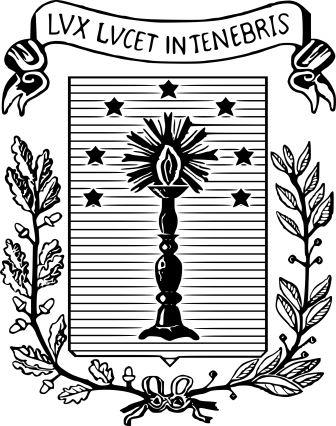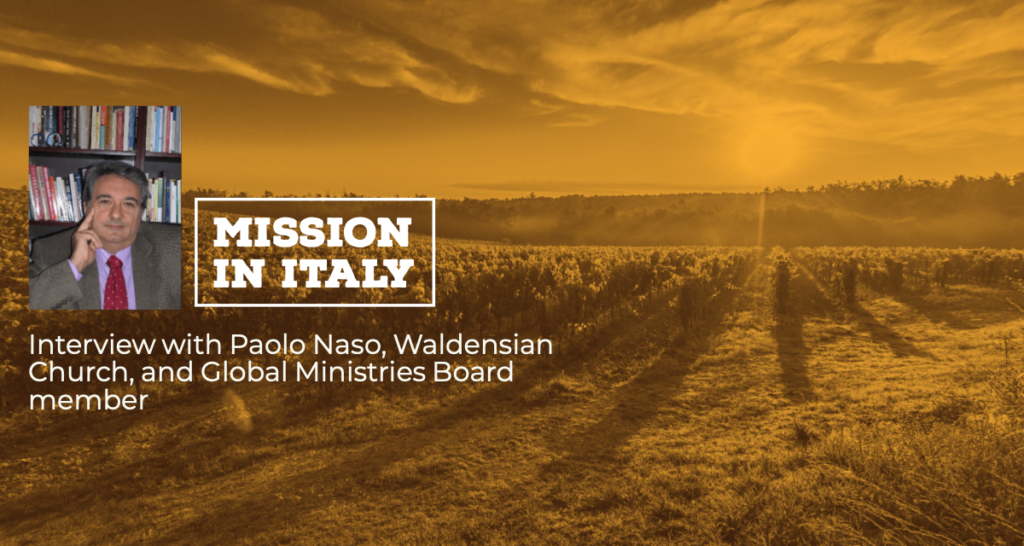Interview with Paolo Naso, Waldensian Church, and Global Ministries Board member
 Paolo Naso, the coordinator of the migrants and refugees program of the Federation of Protestant Churches in Italy, has just completed a two-month sabbatical lecturing at the United Theological Seminary in the Twin Cities in Minnesota. As part of his sabbatical, Paolo attended meetings and conferences in San Diego, Chicago and Holland, Michigan. He also spent a week in Sahuarita in the Tucson area where he visited the US-Mexican border and was hosted by the United Church of Christ of the Good Shepherd. He represents the Europe region as a member of the Global Ministries Board of Directors. In this interview, Paolo reflects about his recent experiences in the United States.
Paolo Naso, the coordinator of the migrants and refugees program of the Federation of Protestant Churches in Italy, has just completed a two-month sabbatical lecturing at the United Theological Seminary in the Twin Cities in Minnesota. As part of his sabbatical, Paolo attended meetings and conferences in San Diego, Chicago and Holland, Michigan. He also spent a week in Sahuarita in the Tucson area where he visited the US-Mexican border and was hosted by the United Church of Christ of the Good Shepherd. He represents the Europe region as a member of the Global Ministries Board of Directors. In this interview, Paolo reflects about his recent experiences in the United States.
Question: Let’s start with an obvious question, given the relevance of your stop along the US-Mexico border to your work with refugees and migrants in Italy and southern Europe. What differences do you see in the way Italy and the United States deal with migrants?
Paolo: In fact, I see no differences. Instead, I see the same dynamics, the same risks, and very similar actors in both countries. There is a populistic, xenophobic wind blowing on both sides of the Atlantic. On both sides of the ocean we see the criminalization of solidarity with those in need. In the European Union and in United States, Christians – particularly Roman Catholics and mainline Protestants – are involved in a common effort to defend human rights and the spiritual value of welcoming and protecting people in need. Even the seemingly most obvious difference between the European and the US approaches to immigration proves their underlying similarity: While the United States is building a wall to block the entry of migrants arriving through the desert, the European Union is implementing policies to prevent migrants from crossing the Mediterranean. On both sides of the Atlantic we see the same polarization between “us” and “them” and the same understanding of immigration as an “invasion-that-must-be stopped,” two misperceptions which together pose the same risks for the quality of our democracies.
Question: Paolo, you have been in the United States many times. Why did you decide to spend yet another sabbatical in the United States?
I have a special relationship with the United States and, in particular, with some seminaries and congregations with which we Italian Christians share values, visions and programs. From the Waldensian side, the Presbyterian Church (USA), the Reformed Church in America and the United Church of Christ have been our historical partners: the number of sisters and brothers from these denominations who have visited our churches in Italy or volunteered at Agape – the famous youth center in the Alps – or at one of the other Waldensian or Methodist centers in Italy is astonishingly high and goes back decades. The denominations in the United States and their respective mission agencies and, of course, the American Waldensian Society, have been a constant and solid support for our small Italian denomination.
But I had another more personal interest in doing this sabbatical in the United States: For years I have researched and written about Martin Luther King, Jr. Now I want to finalize my work in a comprehensive bibliography. It’s amazing how inspirational Martin Luther King’s ministry has been for Christian witness for global peace and justice. Martin Luther King’s dream of a “beloved community” has come to be for many an eloquent vision for what our multiethnic and interreligious societies can become.
Question: What impressed you the most during your recent experience in the United States?
The changes in a US mainline Protestantism that is searching to adapt simultaneously to a new religious super-diversity on the one side and to a thorough-going process of secularization on the other. The most vibrant congregations are those in transition from their traditional ministries to new expressions of Christian life. New ministries and new forms of expression of the Christian life are essential for attracting new people to Christ. No recipe is valid for all; no success can be guaranteed; no strategy can be assumed to be without risk. On the other hand, we should be aware of the fragility of the more traditional models of being church. The need for this awareness is the most important point of contact between the Italian churches – the Roman Catholic Church included – and the US ones, an awareness that, in my opinion, we should reflect on with more passion and creativity.
Question: Is there one memory you’d particularly like to share from your most recent visit to the United States?
I’d like to tell you about a pastor visiting a group of refugees in a shelter in Mexico. Believe or not, it was snowing, the shelter was icy, and the only heating was a candle in a candle box. For me, that pastor’s visit was an icon of Christian mission: visiting prisoners, rescuing refugees, sharing hope in a night of despair.
Question: What do you bring home with you to Italy from this experience?
I bring home new relationships that can be a source of encouragement and support for the ministries of the Waldensian Church in Italy. I also bring home new insights to reflect on. Many of the people I met expressed their concerns about the risks connected with the polarization of the political situation in the United States and their perception that there is growing support in the United States for radical, extremist and racist points of view. In Europe many of us share these concerns about our own contexts. We are glad that in Europe too our churches are working to resist populism and xenophobia.
Paolo Naso is a Waldensian layperson, a professor of political science and the coordinator of Mediterranean Hope, the migrants and refugees program of the Federation of Protestant Churches in Italy. This interview was originally published by the American Waldensian Society.

